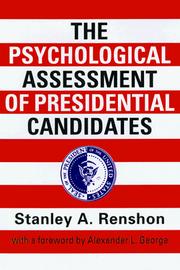| Listing 1 - 10 of 185 | << page >> |
Sort by
|
Book
ISBN: 222108134X 9782221081341 Year: 1995 Publisher: Paris: Laffont,
Abstract | Keywords | Export | Availability | Bookmark
 Loading...
Loading...Choose an application
- Reference Manager
- EndNote
- RefWorks (Direct export to RefWorks)
Book
ISBN: 9782855653747 2855653746 Year: 1988 Publisher: [Paris]: Orban,
Abstract | Keywords | Export | Availability | Bookmark
 Loading...
Loading...Choose an application
- Reference Manager
- EndNote
- RefWorks (Direct export to RefWorks)

ISBN: 2275006230 Year: 1992 Publisher: Paris : LGDJ,
Abstract | Keywords | Export | Availability | Bookmark
 Loading...
Loading...Choose an application
- Reference Manager
- EndNote
- RefWorks (Direct export to RefWorks)
Book
Year: 2020 Publisher: New York : Fordham University, the School of Law,
Abstract | Keywords | Export | Availability | Bookmark
 Loading...
Loading...Choose an application
- Reference Manager
- EndNote
- RefWorks (Direct export to RefWorks)
Book
Year: 2020 Publisher: New York : Fordham University, the School of Law,
Abstract | Keywords | Export | Availability | Bookmark
 Loading...
Loading...Choose an application
- Reference Manager
- EndNote
- RefWorks (Direct export to RefWorks)
Book
ISBN: 0814776639 Year: 1996 Publisher: New York ; London : New York University Press,
Abstract | Keywords | Export | Availability | Bookmark
 Loading...
Loading...Choose an application
- Reference Manager
- EndNote
- RefWorks (Direct export to RefWorks)
Debate on public issues--and where candidates stand on them-- have traditionally represented the focal point of presidential campaigns. In recent decades, however, rather than asking where candidates stand on the issues, the public increasingly wants to know who they are. The issue of character has thus come to dominate presidential elections. While there is increasing public awareness that the psychology, judgment, and leadership qualities of presidential candidates count, the basis on which these judgments should made remains unclear. Does it matter that Gary Hart changed his name or had an affair? Should Ed Muskie's loss of composure while defending his wife during a campaign speech, or Thomas Eagleton's hospitalization for depression, have counted against them? Looking back over the past 25 years, Stanley Renshon, a political scientist and psychoanalyst, provides the first comprehensive accounting of how character has become an increasingly important issue in a presidential campaign. He traces two related but distinctive approaches to the issue of presidential character and psychology. The first concerns the mental health of our candidates and presidents. Are they emotionally and personally stable? Is their temperament suitable for the presidency? The second concerns character. Is the candidate honest? Does he possess the necessary judgment and motivation to deal with the tremendous responsibilities and pressures of the office? Drawing on his clinical and political science training, Renshon has devised a theory which will allow the public to better evaluate presidential candidates. Why are honesty, integrity, and personal ideals so important in judging candidates? Is personal and political ambition necessarily a bad trait? Do extra-marital affairs really matter? Finally, and most importantly, how can the public tell whether a candidate's leadership will be enhanced or impeded by aspects of his personality?With this sweeping volume, Stanley Renshon has provided us with the most comprehensive account to date of how the public judges, and should judge, our future presidents.
Book
Abstract | Keywords | Export | Availability | Bookmark
 Loading...
Loading...Choose an application
- Reference Manager
- EndNote
- RefWorks (Direct export to RefWorks)

ISBN: 0814774695 0814776639 Year: 1996 Publisher: New York ; London New York University Press
Abstract | Keywords | Export | Availability | Bookmark
 Loading...
Loading...Choose an application
- Reference Manager
- EndNote
- RefWorks (Direct export to RefWorks)
Debate on public issues--and where candidates stand on them-- have traditionally represented the focal point of presidential campaigns. In recent decades, however, rather than asking where candidates stand on the issues, the public increasingly wants to know who they are. The issue of character has thus come to dominate presidential elections. While there is increasing public awareness that the psychology, judgment, and leadership qualities of presidential candidates count, the basis on which these judgments should made remains unclear. Does it matter that Gary Hart changed his name or had an affair? Should Ed Muskie's loss of composure while defending his wife during a campaign speech, or Thomas Eagleton's hospitalization for depression, have counted against them? Looking back over the past 25 years, Stanley Renshon, a political scientist and psychoanalyst, provides the first comprehensive accounting of how character has become an increasingly important issue in a presidential campaign. He traces two related but distinctive approaches to the issue of presidential character and psychology. The first concerns the mental health of our candidates and presidents. Are they emotionally and personally stable? Is their temperament suitable for the presidency? The second concerns character. Is the candidate honest? Does he possess the necessary judgment and motivation to deal with the tremendous responsibilities and pressures of the office? Drawing on his clinical and political science training, Renshon has devised a theory which will allow the public to better evaluate presidential candidates. Why are honesty, integrity, and personal ideals so important in judging candidates? Is personal and political ambition necessarily a bad trait? Do extra-marital affairs really matter? Finally, and most importantly, how can the public tell whether a candidate's leadership will be enhanced or impeded by aspects of his personality?With this sweeping volume, Stanley Renshon has provided us with the most comprehensive account to date of how the public judges, and should judge, our future presidents.
Book
ISBN: 9781009495615 Year: 2024 Publisher: Cambridge : Cambridge University Press,
Abstract | Keywords | Export | Availability | Bookmark
 Loading...
Loading...Choose an application
- Reference Manager
- EndNote
- RefWorks (Direct export to RefWorks)
Popular accounts of presidential nomination politics in the United States focus on factions, lanes, or even a civil war within the party. This Element uses data on party leader endorsements in nominations to identify a network of party actors and the apparent long-standing divisions within each party. The authors find that there are divisions, but they do not generally map to the competing camps described by most observers. Instead, they find parties that, while regularly divided, generally tend to have a dominant establishment group, which combines the interests of many factions, even as some factions sometimes challenge that establishment. This pattern fits a conception of factions as focused on reshaping the party, but not necessarily on undermining it.
Book
ISBN: 9780871874580 087187458X Year: 1988 Publisher: Washington, D.C.: Congressional Quarterly,
Abstract | Keywords | Export | Availability | Bookmark
 Loading...
Loading...Choose an application
- Reference Manager
- EndNote
- RefWorks (Direct export to RefWorks)
| Listing 1 - 10 of 185 | << page >> |
Sort by
|

 Search
Search Feedback
Feedback About UniCat
About UniCat  Help
Help News
News